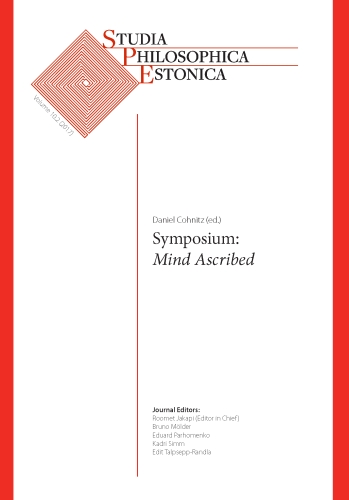Interpretivism and the Meaning of Mental State Ascriptions
DOI:
https://doi.org/10.12697/spe.2017.10.2.04Keywords:
mental states, mind-body problem, interpretivismAbstract
Interpretivism is often seen as the theory according to which mental state ascription is useful, even though mental states do no really exist. this “as if” theory is widely held to be untenable. In this paper I argue that in order to avoid an “as if” reading of interpretivism, we should embrace the strongest version of this theory.
References
Dennett, D. (1987). The Intentional Stance, MIT Press, Cambridge, MA.
Dennett, D. (1991). Real patterns, The Journal of Philosophy 88: 27-51.
McCulloch, G. (1990). Dennett’s little grains of salt, The Philosophical Quarterly 40: 1-12.
Mölder, B. (2010). Mind Ascribed: An Elaboration and Defence of Interpretivism, John Benjamins, Amsterdam.
Ravenscroft, I. (2005). Philosophgy of Mind: A Beginners Guide, Oxford University Press, New York.
Ryle, G. (1949). The Concept of Mind, Hutchinson, London.
Slors, M. (1996). Why Dennett cannot explain what it is to adopt the intentional stance, Philosophical Quarterly 46: 93-98.
Slors, M. (2007). Intentional systems theory, mental causation and empathic resonance, Erkenntnis 67: 321-336.





